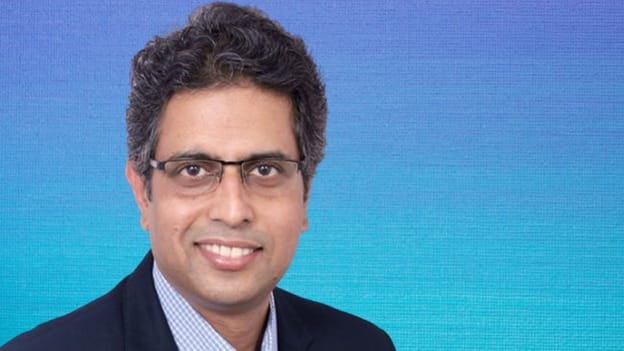Organisations need blended approach of technology and human interfaces: Balaji Kumar of Sonata Software

With the changing work structure the determinants of productivity, leadership traits and other important verticals of the future of work are undergoing gradual changes. This raises a question on the relevance and longevity of the present day methods of workforce management along with the skills being imparted to the workforce currently.
To know more about the future of management of the next generation employees, People Matters caught up with Balaji Kumar, CHRO, Sonata Software. Here are some excerpts from the conversation.
How do you define ‘future of work’?
Digitisation is what I would use as the pivot around how the future of work is going to get defined. And there are two aspects to it. The first one is around being democratised. So along with digitisation, comes a lot of democratisation of information. The other side of digitisation is where the workplace becomes depersonalised and a lot of interaction starts happening on the digital platforms. So if you were to ask me the three words, which describe the future of work, those would be ‘digitised, democratised and depersonalised’.
Inclusiveness is going to become extremely important from a future of work point of view.
And to a great extent all of these leads to a workplace which is based on trust. So at the end of the day, I think that enterprises which are able to crack the code of creating a trust premium are the ones which are going to really win the game as far as the future of work is concerned.
To what extent do you think process automation is going to affect the future workforce?
To put it very simply, it will impact significantly. So, to what extent and how work is going to significantly be impacted by process automation? Let me give you an example. With much of my tasks getting automated, much of my bandwidth gets released which I can use to do something meaningful, purposeful, and something that creates value. I think we are now going to work towards an era of personnel based engagement, where there are different personas in organisations and each personnel may have a different driver or different needs.
And a lot of these process automation can hopefully give us those drivers for the personas and help us better manage employees according to their expectation, experience and engagement point of view. So to answer in short, the impact is going to be far more significant than what all of us can even imagine today.
A survey conducted by PWC states, “Being able to identify risks in replacing human work with technology was the biggest challenge cited by respondents”. How fast, according to you, should the leaders buckle up to identify the challenges in order to strike the right balance between tech and human resources, ten years down the line?
Leaders should start thinking as of yesterday, and the reason is that it is not just about being able to identify where technology can actually replace humans in. But more importantly, it is about using judicious judgment as to which function is to be assigned to technology or AI and which part of it should actually be retained by humans.
Every transaction, every activity, every work, every program in organisations, has both the human and the technology interfaces.
I think it's going to be a blended approach that we will need to depend on and that's where the judgment of the leaders in terms of deploying technology and assigning humans is going to play a crucial role. So, according to me, it's about being able to exercise the right judgment because it is about blending and having a hybrid approach and ensuring that these complement each other so that organisations can maximise the human capital usage and the digital side of the enterprise. And that balance is an extremely important one to maintain in the years to come.
According to you, what is going to be the productivity assessment process of the future workforce that may work closely with AI?
I think productivity in that new world itself will have different connotations. It will no longer be about completing tasks on time or even be about outcomes. I think, to a large extent, productivity will be about value creation, using AI and technology. According to me, that would definitely be one of the core parameters of assessing productivity in terms of value generation out of AI.
Productivity is also about purpose and how you're addressing the needs of a diverse set of stakeholders. So that's where again, the definition of performance and productivity are undergoing a change, and are going to get assessed on these parameters along with including collaboration and learning abilities.
As mentioned above in one response, I think one of the core aspects of the future of work is using the right judgment. One will have all the tools, data, and information because of the , digitisation, AI and automation, but the judgment to use what and when is going to be the secret sauce of success for any enterprise. So in summary, as I mentioned, it's about value creation using AI and not just for the profit, but for all stakeholders. social and psychological capital. And characteristics such as judgment and trustworthiness are going to be the key pivots and parameters for assessing, evaluating and rewarding productivity.
















